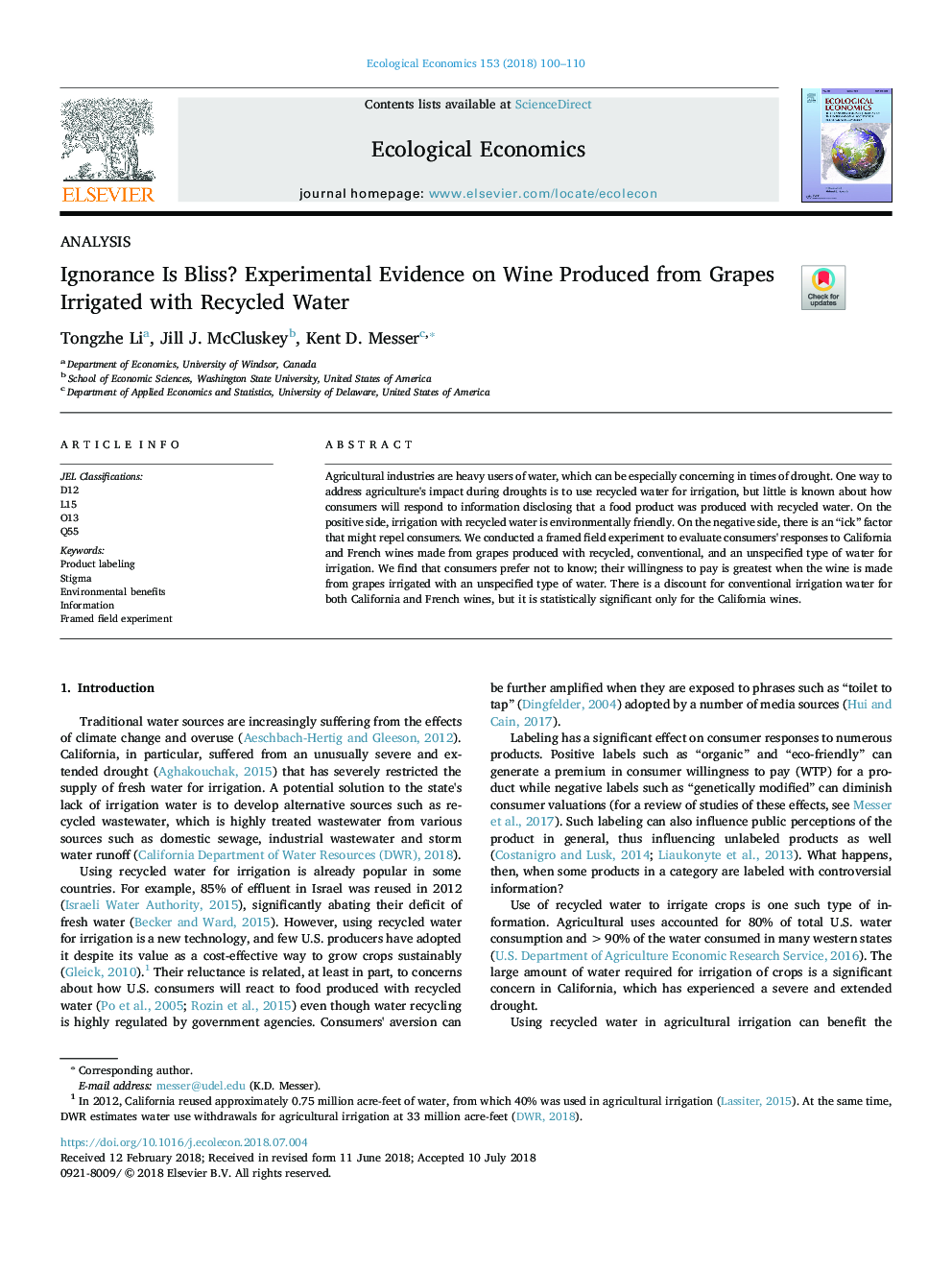| Article ID | Journal | Published Year | Pages | File Type |
|---|---|---|---|---|
| 7343729 | Ecological Economics | 2018 | 11 Pages |
Abstract
Agricultural industries are heavy users of water, which can be especially concerning in times of drought. One way to address agriculture's impact during droughts is to use recycled water for irrigation, but little is known about how consumers will respond to information disclosing that a food product was produced with recycled water. On the positive side, irrigation with recycled water is environmentally friendly. On the negative side, there is an “ick” factor that might repel consumers. We conducted a framed field experiment to evaluate consumers' responses to California and French wines made from grapes produced with recycled, conventional, and an unspecified type of water for irrigation. We find that consumers prefer not to know; their willingness to pay is greatest when the wine is made from grapes irrigated with an unspecified type of water. There is a discount for conventional irrigation water for both California and French wines, but it is statistically significant only for the California wines.
Related Topics
Life Sciences
Agricultural and Biological Sciences
Ecology, Evolution, Behavior and Systematics
Authors
Tongzhe Li, Jill J. McCluskey, Kent D. Messer,
